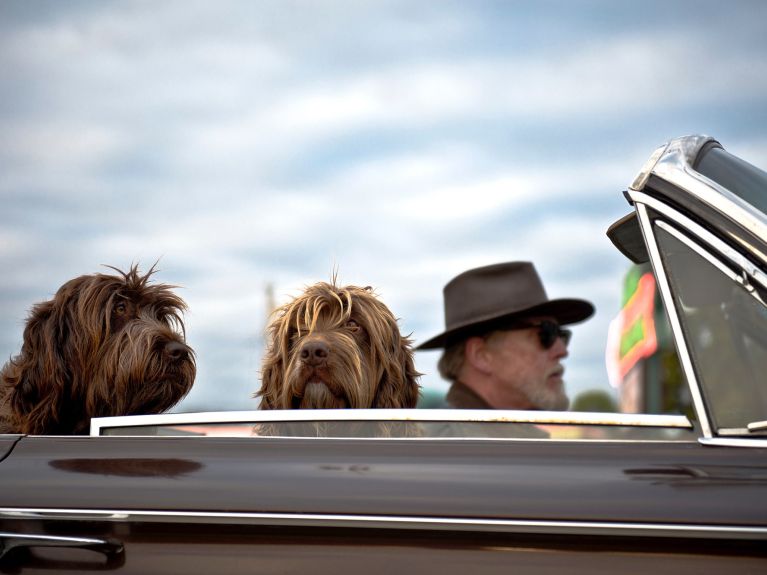Zee Germans & their dogs
Dogs are popular pets all over the world, but there’s something special – one might say odd – about the Germans’ relationship with their four-legged friends.

In Germany, you can joke about everything,” quipped Peer Steinbrück recently, “except about dog owners.” And Steinbrück, a former German finance minister under Angela Merkel, would know. While still a politician for SPD, he became well known for his quick wit, and today, after retiring from politics, he has been touring the country on a regular basis, performing in a satire show with popular German political satirist Florian Schroeder. In other words, he has a lot of experience when it comes to figuring out where that famous German sense of humor begins – and where it ends.
German dog owners are absolutely humorless
According to Steinbrück, Germans will laugh about almost everything – even about themselves and their own children. But the subject of dogs is taboo. It’s sacred, so to speak. At least in this regard, German dog owners are absolutely humorless.
Indeed, if we take German dog owners at their word, people who don’t own a dog are incomplete. Dog owners never tire of communicating this fact to the rest of humanity. They stride with their chests out and noses up past all those poor, dog-challenged half-people. It doesn’t matter whether the worshiped creature at their side is large or small, purebred or rescue, attack dog or lapdog, a loud barker or an obedient accomplice.
More than pets
For dog owners, dogs are more than pets; they are the source of meaning and identity. Plus, they make it possible for their owners to differentiate themselves from one group while still belonging to another. In other words, dogs are a means to an end. They are a status symbol similar to all the other things people like to show off: my Porsche, my yacht, my children, my dog. Sometimes dogs even become full-fledged family members who make an indispensable contribution to the development of children on their way to becoming well-rounded individuals.

While it’s true that this human-dog relationship might be similar in other countries, there is no question that the attachment to this kind of four-legged friend is nowhere else as intimate and emotional as it is in Germany. No other country in Europe is home to as many dogs as Germany – a total of 10 million. Today, every fifth home in Germany has a dog. And the numbers are rising year after year.
It’s not always clear who needs whom
Dogs are best friends, substitutes for absent partners or children and faithful companions who forgive everything, overlook every blemish and keep everyone happy when spouses or kids are in a bad mood. All you have to do is look at Fido, Lady or Fletch and the beasts will start wagging their tail and drooling with joy, day after day, as if their happiness depended on it – which it actually does.
Dogs are dependent on the humans who take care of them; in return, they reward humans with love, loyalty and devotion. From time to time, however, the boundary between humans and dogs shifts, and it’s not always clear who needs whom. A questionable and not necessarily animal-friendly symbiosis occasionally emerges, where dogs share their owner’s bed, eat their steak at the dinner table and take over the family sofa.
The market for dog snacks is growing rapidly
But, alas, nothing is too good for the dogs Germans love. And it would appear that nothing is too expensive either. In 2018, Germans spent almost €1.5 billion on dog food alone, which is more than they’ve ever spent. The market for dog snacks is growing rapidly, too, becoming a veritable treasure trove for enterprising inventors. For example, one beachside restaurant on the German island of Sylt – a popular and often luxurious holiday destination – offers a very special delicacy: dog-friendly frozen yogurt in two delicious flavors: “Beef & Carrot” and “Wild Salmon & Carrot.” Each mini cup costs €3.
There are apparently no limits to the foolish lengths humans will go to when seeking to pamper their four-legged buddies. The list of inventions extends from luxurious dog baskets and brand-name clothing all the way to electric car ramps for getting the animal into and out of cars.
Read the whole text on The German Times website
Bettina Weiguny is a freelance journalist based in Bad Soden. She writes a weekly column in the Frankfurter Allgemeine Sonntagszeitung.